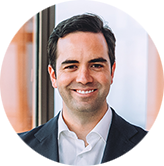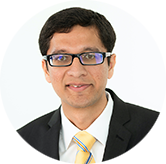Business competitions are a highlight of the MBA for our Full-time MBA students. They are a great opportunity to put learnings into practice and gain experience of working on high-pressure, fast-paced challenges.
Before Covid-19, competitions were also a chance to travel and network face-to-face with peers from around the world. During lockdown, unfortunately a number of competitions have transitioned to a virtual environment. However, that has not deterred our MBA students from participating and taking home prizes.


Full-time MBA candidates Enrique Gaya Picon and Shreyans Matani recently entered an online policy hackathon hosted by the Global Shapers Community’s Oxford Hub, an initiative of the World Economic Forum. The Global Shapers Community is a network of young people driving dialogue, action and change.
The competition was held online over a long weekend, with the aim of creating data-driven solutions and policy proposals to help the City of Oxford tackle specific problems that will arise post-Covid.
The competition attracted students and professionals from around the world, but our MBA students each won a category. Enrique's team won ‘Most Innovative Project’ and Shreyan's team took home the award for ‘Overall Best Project’. We spoke to Enrique and Shreyans about their experience.
Can you provide a brief overview of the competition?
Shreyans: The competition started on Friday evening, building up to presenting the final projects on Monday. We were split up into about 10 teams and each team was allocated a post-Covid challenge to work on. There were four challenges in total: stimulating the local economy; supporting the homeless; supporting frontline NHS workers; and sustaining community engagement with the vulnerable. Over the four days we had sessions where different industry experts came in to guide us on concepts such as design thinking, and to help us decide our project aims and deliverables. They listened to our ideas, offered suggestions and helped us answer our questions. We then worked together to create prototypes, and tested them to find the best solution. Finally we presented our projects to a panel of judges.
Enrique: It was interesting that you weren’t able to choose your own team – you were allocated to a team of five or six people. The team members varied from undergraduate students to MBAs and PhDs, as well as young professionals from consulting, banking, start-ups, etc. The topic I was given was how to tackle homelessness in Oxford, which wasn’t my first choice. I don’t know much about that subject so I really had to up my game! However they had everything in place to help you become an expert in the subject in a very short period of time, and I was very impressed with the level of subject matter experts they were able to provide. It was intense, but it was a pleasure to get more informed about homelessness.
What was the prize for winning?
Shreyans: For my category, the prize was 2000 face masks to donate to the charity of our choice. For me though, the competition was more about the experience than winning a prize. These competitions are also a really good opportunity to network and meet people from other MBAs and industries.
Enrique: For the category I won, the winning project will be taken forward by Oxford City Council with public funding made available to support and implement the ideas. We have a meeting in a couple of weeks to discuss taking the idea forward. As Shreyans said, the main reason for taking part was for the learning experience, and also to do our bit to contribute to the Covid recovery.
How did you apply what you have learned on the MBA at the competition?
Shreyans: During the MBA you work on a variety of projects with a really wide mix of people from different nationalities, cultures, educational and professional backgrounds, etc. This variety brings in a good mix of opinions and skills, but can also bring some difficulties. So having that experience helped us to work well in our diverse teams in the competition. One of the things we learn on the MBA is being able to leverage the diverse skills that you have on a team – in such an intense competition we needed to identify and use each person’s skills to get the best from the team. I used one of the strategy frameworks that we’ve learned on the MBA to direct our thinking in the team. I also drew on my experience from other competitions we have taken part in at AMBS, such as the Venture Capital Investment Competition, where we travelled to Europe for the regional finals.
Enrique: I agree about the diversity. Shreyans and I have actually worked together on one of our MBA consultancy projects. Our team included an engineer, doctor, finance expert and lawyer from China, Myanmar, India and Spain. So, it felt very natural and easy to work in a new team during the Oxford competition. Also, one of the tools we use during the MBA – the Strategyzer Business Model Canvas – was actually the technical tool that we used to win the most innovative project! It was a tool that they requested and I was the only member in the team that was familiar with it.

